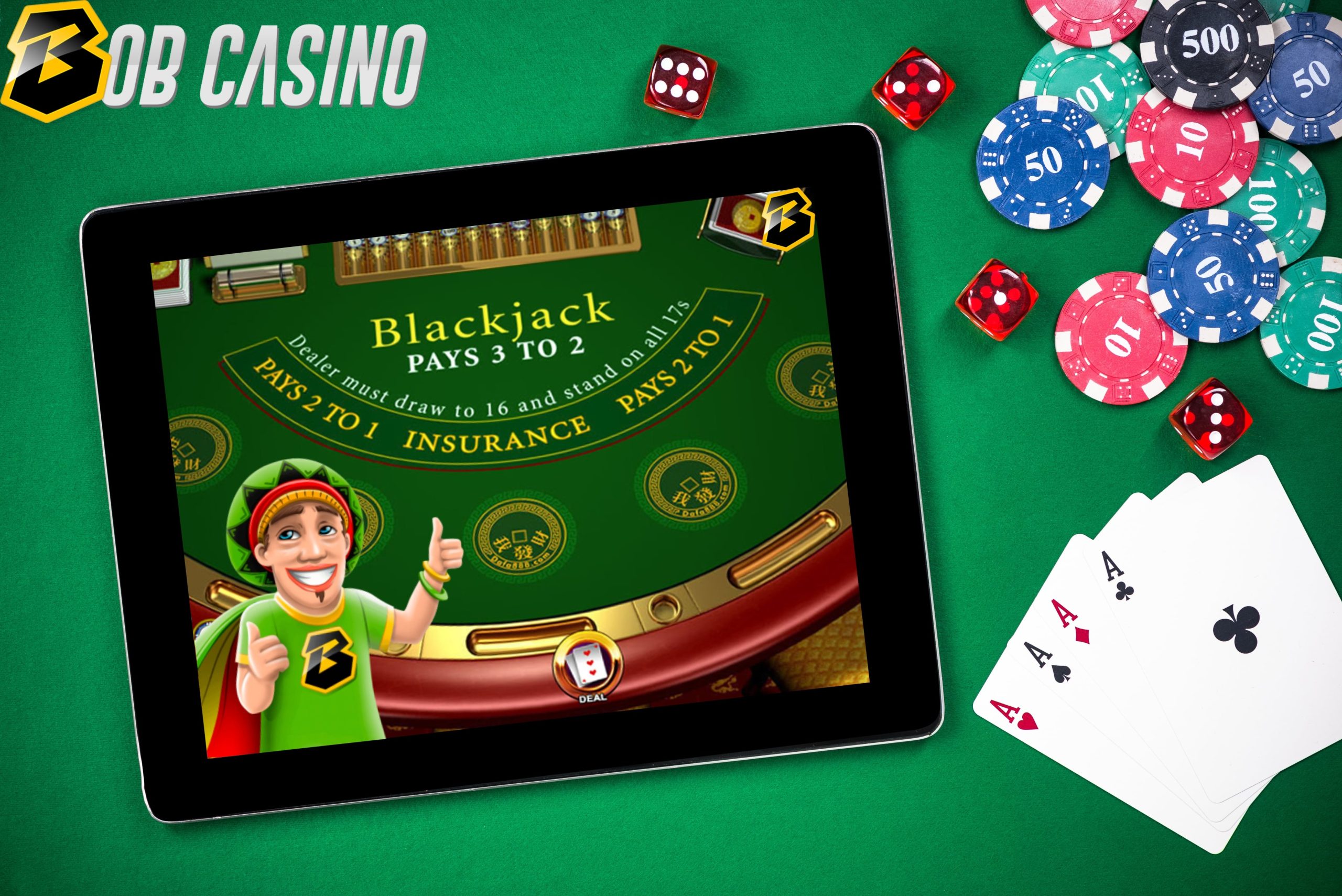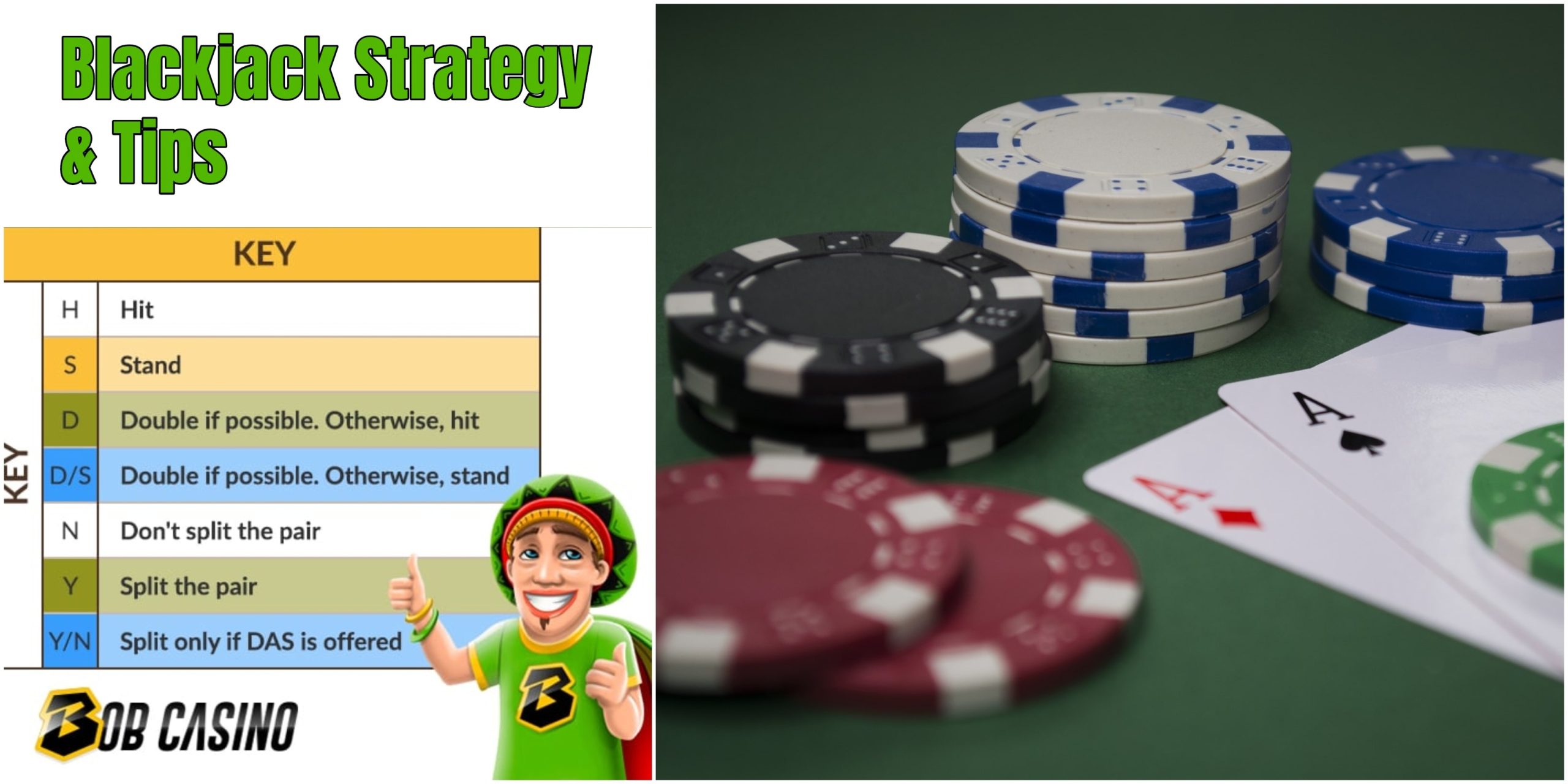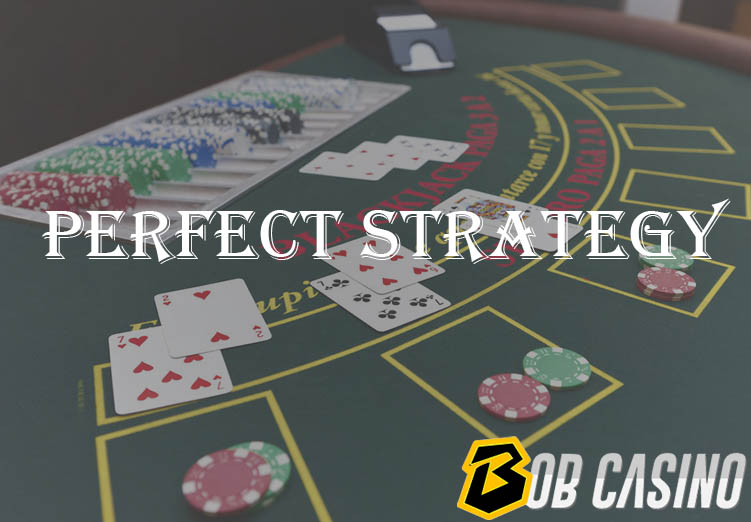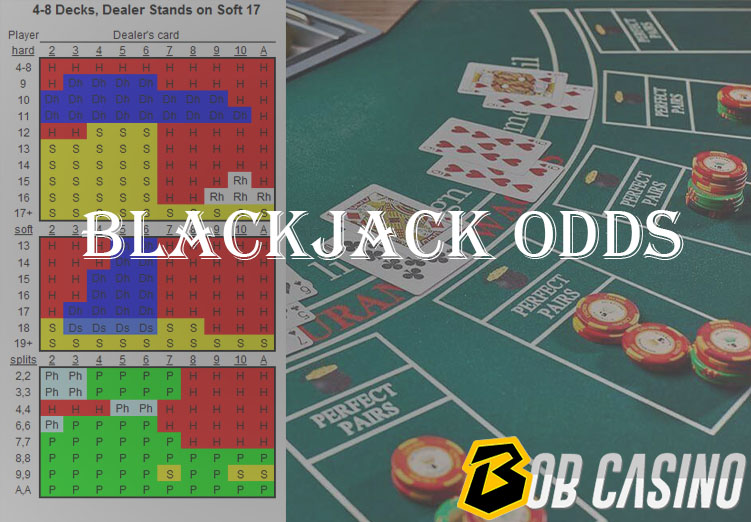 Published: 28.03.2020, 17:50
Published: 28.03.2020, 17:50 6 min read
6 min readBlackjack is an extremely popular and iconic casino card game. Tracing its roots to the early 17th century, the blackjack is a gambling classic favored by players of all ages throughout the world. Today, there are thousands of venues that off both offline and online blackjack. Blackjack is a game that is easy to learn, but it can take many years (or even decades) to master. Read our ultimate guide to blackjack to find out absolutely everything you need to know to start playing blackjack today!
Blackjack Rules for Beginners: Rules & Basics
The Game’s Objective
The goal of each round is scoring higher than the dealer, while, at the same time, not going over a score of 21 points. If you go over twenty-one, you immediately lose the round (in blackjack, this situation is known as going bust).
Card Values
The point values of cards are straightforward and aren’t hard to remember:
- Cards from 2 to 10 have a worth equivalent to the value shown on their face.
- Jacks (J), queens (Q), as well as kings (K) are each worth ten points.
- An ace (A) can be worth either one or eleven points, depending on what you choose.
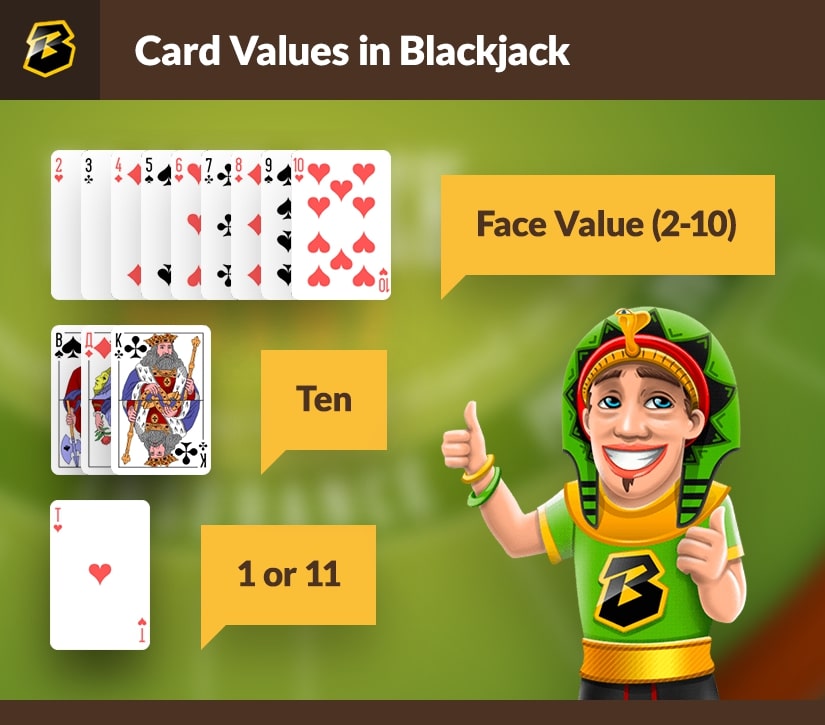
Blackjack for Beginners: How Can I Win A Round?
There are three main ways of winning a round of blackjack: being dealt a natural blackjack, getting a score that is higher than that of the dealer, or having the dealer go bust. If you score the same as the dealer, the round is declared a draw and you will get your bet back (in blackjack, this situation is known as a push).
Natural Blackjack
A “natural” blackjack occurs when one gets 21 points with their first 2 cards. Such a situation can only happen with the following opening hands: (A 10), (A J), (A Q), (A K). When this happens, you automatically win the round and are awarded a 3:2 payout. For example, if you had bet $20, you would win $50, instead of the $40 you would win otherwise.
Natural blackjack will win you the round regardless of how much the dealer scores. The only exception to this is when the dealer also gets a “natural” blackjack. In this scenario, it will be a push and your wager will be refunded.
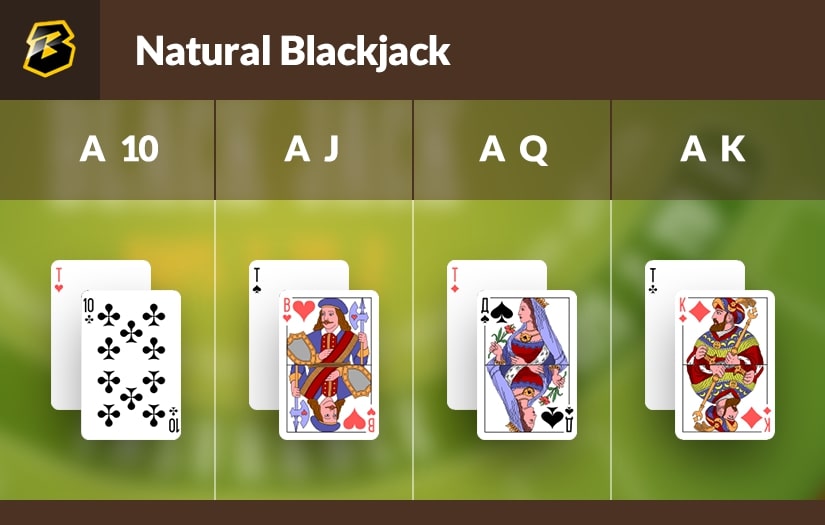
Outscoring the Dealer
The most common way of winning in blackjack is by outscoring the dealer. As the dealer is required to hit until they get a score of 17 or above, you can only win this way by scoring 18 points or more.
The Dealer Busts
Just like you or any other player at the blackjack table, the dealer busts when they go over 21. Whenever this happens, all of the players who have played (and haven’t busted) win the round.
Need to revise the basics of playing Blackjack as a beginner? Check out this video for the most essential info:
Blackjack for Beginners: Bets and Chances of Winning
How Big Are the Bets?
Each blackjack table has its own minimum and maximum bets. This is true in both offline and online blackjack. In most physical casinos, minimum bets range from $5 to $15. In online blackjack, bets can start at $1 (or even less).
Many online casinos offer practice modes for blackjack beginners. This is a perfect option for people who aren’t comfortable betting real money yet. This is why we recommend online blackjack for beginners who are just learning the game. Try playing blackjack and other table games for free HERE.
How Much Can I Win?
Normally, whenever you win a round of blackjack, you will win double your original bet. For example, if you bet 10$ and win the round, you will get $20. This figure includes your original $10 and $10 from the casino. If you win via a natural blackjack, the casino’s payout ratio increases to 3:2. This means that the same $10 bet will earn you $25 instead of $20.
What Is My Chance of Winning?
Blackjack is a game of skill (and some luck). A blackjack player’s chances of winning are based on their knowledge of basic strategy and skill at counting cards. This being said, the house edge of a typical blackjack game ranges between 0.17% and 0.70%, depending on the number of decks in the game. Because of this low house edge, blackjack is known as one of the fairest casino games.
Blackjack for Beginners: Game Flow
Now that you are familiar with blackjack rules, know how to win at blackjack, and are familiar with bets and your chances of winning, let’s look at how a typical round of blackjack is played.
Betting
At the start of the round, you place your bet. You can bet as much, or as little, as you want, but only within the limits set by the blackjack table. If you want to wager less than the minimum bet or more than the maximum bet, you should switch to a different blackjack table.
Hit or Stand
After the betting phase is complete, each blackjack player receives two cards. The dealer places these cards face-up on the table. The dealer also places one of their own cards face-up, while the other remains face-down.
During your turn, you add up the values of your hand. After that, you have two choices. You can request an extra card (hit) or play your hand as it is (stand). You can hit as many times as you want until you get a score you’re satisfied with.
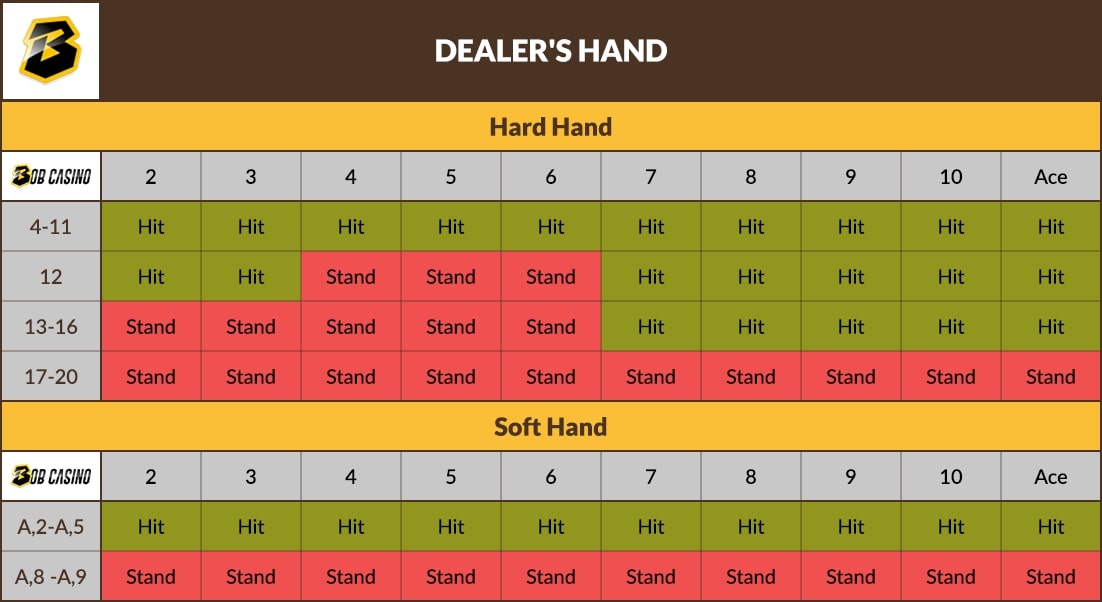
A table that describes the strategy for hitting or standing in Blackjack, for both hard and soft hands.
Dealer’s Turn
After the players finish their turns, the dealer puts their second card face-up. The dealer will then proceed to hit until they get a score of 17 or above. Once there, the dealer will stand.
There is one possible exception to this – the soft 17 rule. A soft hand is a hand with at least one ace. Some casinos require dealers to stand on a soft 17, while others require the dealers to hit on a soft 17.
End of the Round
Once the dealer stands, the round is over and one of the following three scenarios occurs:
- You win if you get a natural blackjack (and the dealer doesn’t), have a higher score than the dealer, or if the dealer goes bust.
- The dealer wins if they get a natural blackjack (and you don’t), have a higher score than you, or if you bust.
- If you and the dealer score the same amount, it is a push and you get your money back.
Tips for Blackjack Beginners: Betting Options
In this last section of our beginner’s guide to blackjack, we’d like to talk about additional betting options. After you are dealt your hand, you have three betting options: doubling down, splitting, and insurance.
Doubling down
If you feel confident in your hand, you can double your bet. This is known as doubling down. Listed below are the three opening hands during which blackjack experts recommend doubling down:
- Hard 9, a score of 9, with neither of the cards being an ace.
- Hard 10 or 11, scores of 10 or 11, with neither of the cards being an ace.
- Soft 16 to 18, a hand containing an ace and a 5/6/7. It’s recommended to double down on this hand if the dealer’s first card is a 6 or lower.
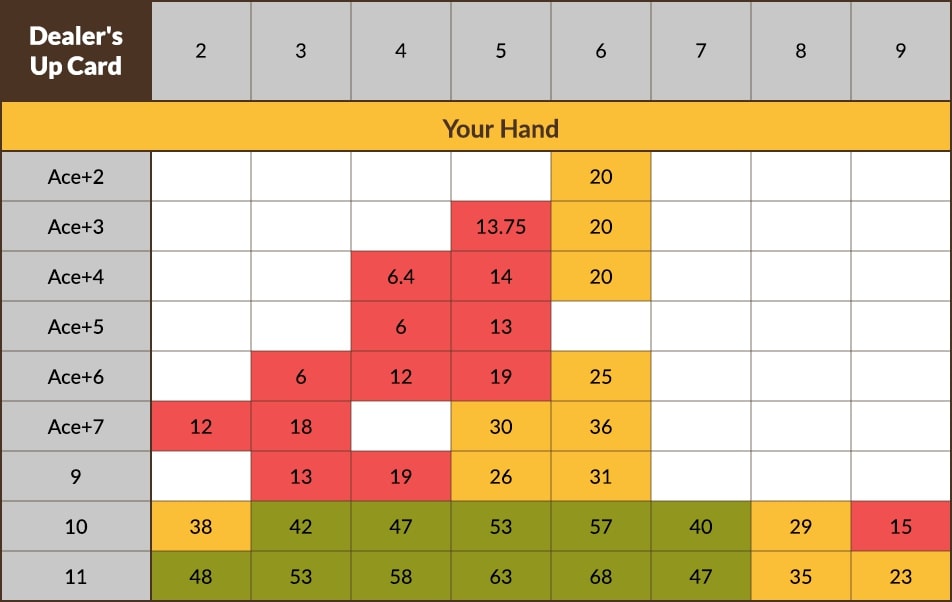
A table that shows how much the player could make per dollar when doubling down.
Splitting
Splitting gives you the option to play your two cards separately. To split, you move your original bet to one of the cards and make an equal bet on the second one. The dealer will then deal you an extra card on top of each of these cards, essentially giving you two hands. From then on, you play the two hands separately. Experts recommend splitting an opening hand containing two aces (A A) or two eights (8 8).
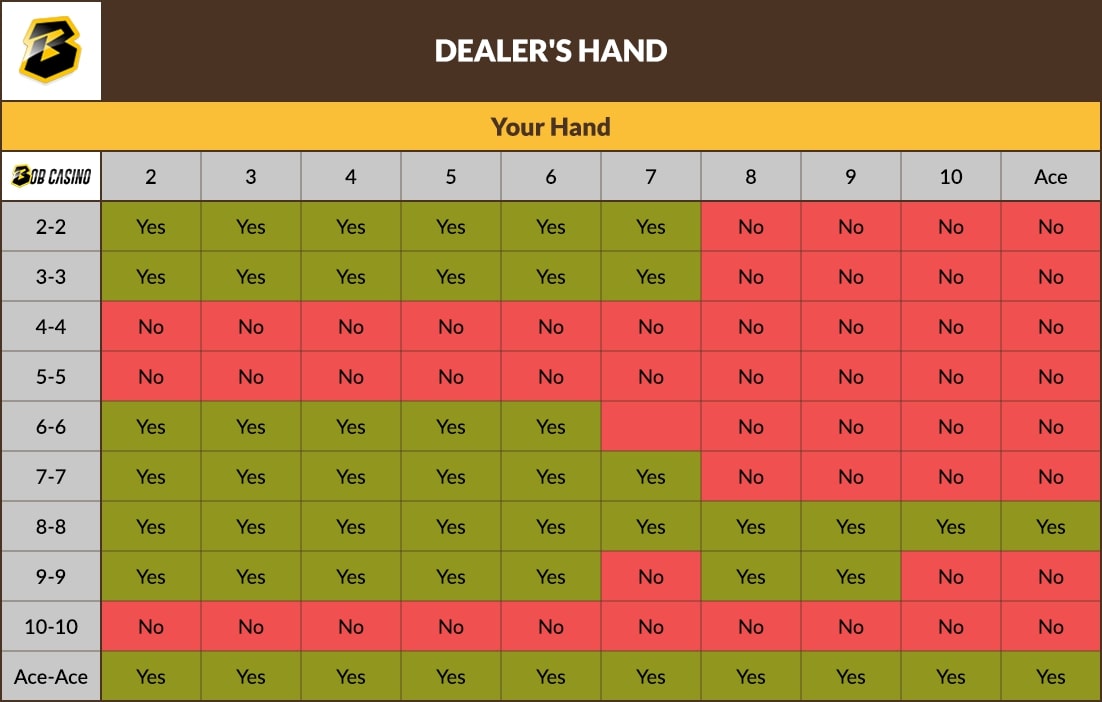
A simple table that describes when splitting in Blackjack can help.
Insurance Bet
If the dealer’s face-up card is an ace, you can place an insurance bet. Such a bet protects you from a natural blackjack by the dealer. The insurance bet is equal to 50% of your original wager. If a natural blackjack does not occur, you lose your insurance bet. If the dealer has a blackjack, you still lose your original bet, but you win your insurance bet. This essentially gives you your money back.
Need more advanced information? Then check out our list of strategies, tips, and techniques to win at blackjack.

